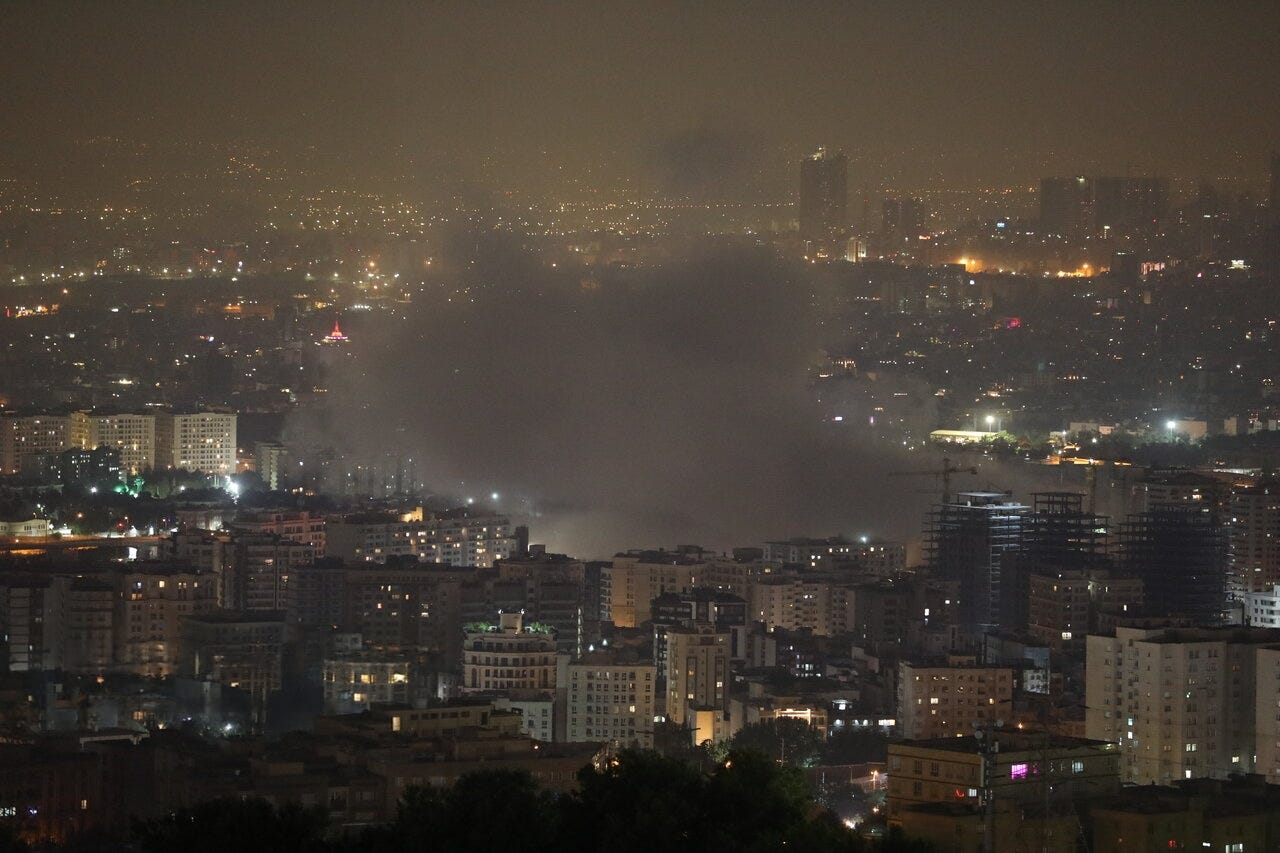Let's Talk
Austria still sees itself as a neutral arbiter in world affairs even though its foreign policy no longer accords with that vision
Servus!
As of writing, a ceasefire between Iran and Israel, announced by United States president Donald Trump on Monday evening, is barely holding. The ostensible truce follows 12 days of missile strikes exchanged between the two parties, beginning with Israel’s surprise attack on Iran’s nuclear facilities June 13. The U.S. upped the ante with its own strikes, including on the Fordow Uranium Enrichment Plant. Austria has transferred diplomatic personnel out of Tehran to safe haven in Baku, Azerbaijan and arranged charter flights to evacuate Austrian citizens from Israel and Iran.
Austrian foreign minister Beate Meinl-Reisinger (NEOS) stopped short of condemning the U.S. decision to strike Iran in remarks made on the fringes of the most recent Foreign Affairs Council meeting in Brussels. “There is no question in my mind that Iran must not be allowed to possess nuclear weapons,” she said. However: “I am convinced that in the long term this can only be achieved through a negotiated solution. We will do everything in our power, together with our partners in the region, to prevent further escalation.”
Last week, Ukrainian president Volodymyr Zelenskyy made his first official visit to Vienna since Russia’s invasion of his country in February 2022. In the lead-up to that trip, vice-chancellor Andreas Babler (Social Democratic Party, SPÖ) suggested that “as a neutral country, Austria would be an ideal venue for peace talks between Russia and Ukraine. We have to do everything we can,” he continued, “to strengthen trust between the two sides. As the seat of the United Nations, Vienna has a long tradition in this regard that we can build on.”
Babler, however, is only half-right here. Austria has indeed remained militarily neutral during the Russo-Ukraine War, but politically, it has clearly taken the Ukrainian side. Through the European Union, Austria has given financial and humanitarian aid to Ukraine and supported numerous rounds of sanctions packages against Russia. “Now is the time to continue to maintain pressure on Russia through sanctions and support for Ukraine, together with the U.S.,” Meinl-Reisinger said in Brussels June 23.
The role Babler seeks for Austria has been taken on by alternative third parties to the Russo-Ukraine War, and it is unlikely to get it back. Take Turkey and its role in brokering the Black Sea Grain Initiative in 2022, for example. It is possible, too, that Austria’s position on Ukraine would preclude it from hosting negotiations regarding Iran’s nuclear program if they were to be resume in earnest. Vienna, you may recall, hosted much of the negotiations over the Joint Comprehensive Plan of Action (JCPOA), the original agreement limiting Iran’s nuclear program which the U.S. walked away from in 2018.
The parties to the JCPOA, save Iran, were the P5+1—the U.S., United Kingdom, France, Russia and China as the five permanent members of the UN Security Council plus Germany—and the EU. In light of Russia’s invasion of Ukraine, it is difficult to see how the Iranian nuclear talks could be resumed in the P5+1 format, and especially in a country that has adopted a clear position in favor of Ukraine. Austrian relations with Israel are deeper and more committed now than they were in 2015 when the JCPOA was concluded, a fact which could also undermine Iranian confidence in Austria as an arbiter. Perhaps the problem here is that Austria’s conception of itself has not caught up with the reality of its foreign policy.
Bis bald!
Thank you for reading The Vienna Briefing. Nothing beats a personal recommendation; if you know someone who would be interested in reading this newsletter, consider sharing it with them today.
The Vienna Briefing is a reader-supported publication. Your one-time or monthly tips make my work on this newsletter possible and help keep The Vienna Briefing free for everyone.
Pension Reform Compromise
Austria’s governing parties have agreed the terms of a ‘sustainability mechanism’ designed to secure the future of the country’s state pension system. Existing measures implemented in this year’s budget will raise the retirement age in effect by narrowing the points of entry to early retirement.
Public Transport Price Hike
Vienna’s city government will raise the prices of its annual public transport pass and parking permit as it looks to reduce its budget deficit. An annual public transport ticket currently costs €365, while a parking permit will set you back €10 a month or €120 a year.
Ban Pride, Say FPÖ
Pride demonstrations should be banned across Austria, a regional far-right Freedom Party (FPÖ) politician has suggested. The proposal comes after the Hungarian government moved to ban Pride in Budapest, where the annual parade is due to take place on Saturday with a delegation of Austrian MPs in attendance.





Helpful discussion, Liam, thank you. My impression is that the Austrian citizenry has no great interest in abandoning neutrality--even though, as you point out, that label no longer quite fits contemporary Austria.